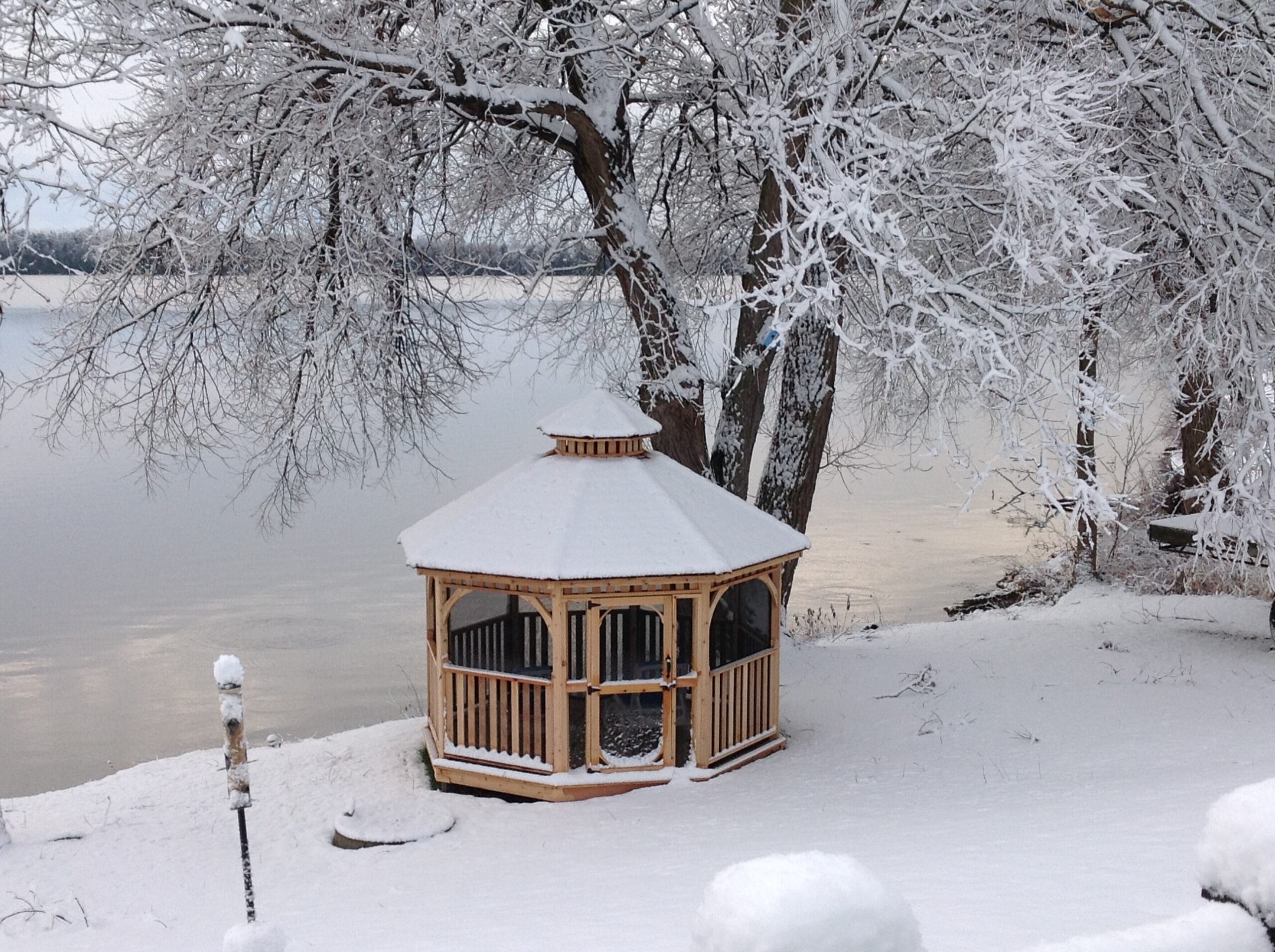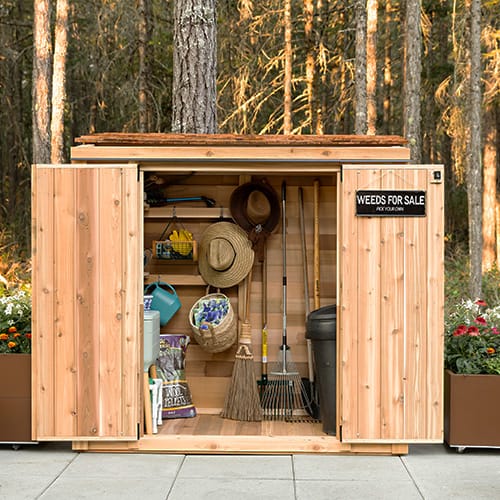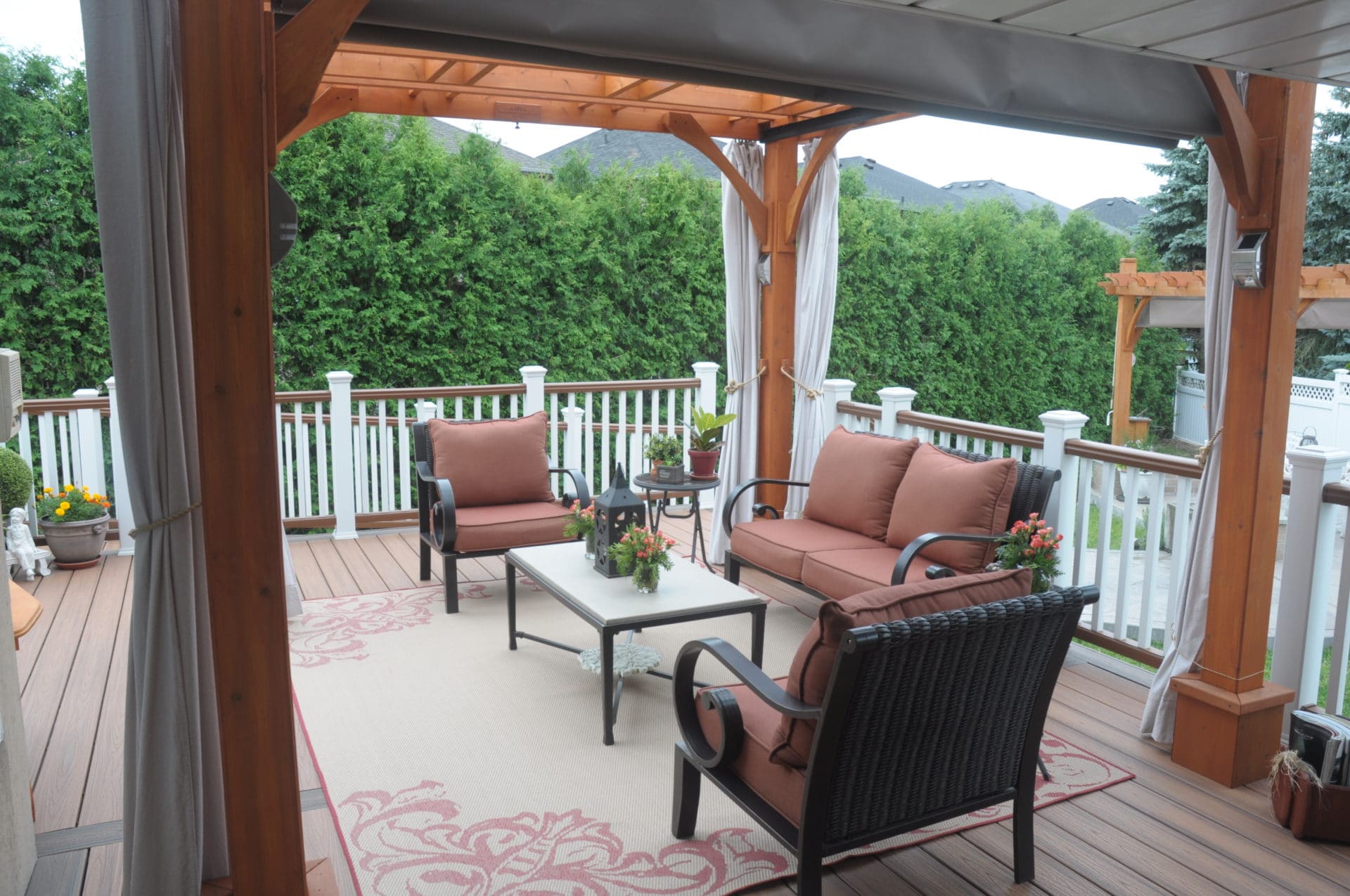No products in the cart.
December 17, 2014
How to Winterize Your Backyard: Tips for Protection & Seasonal Maintenance

As the seasons shift and summer fades, it’s time to start thinking about how to winterize your backyard. From patio furniture to garden tools, taking steps now will not only protect your outdoor space during the colder months but also make reopening it in the spring much easier.
Whether you’re a gardening enthusiast or simply want to maintain your investment in outdoor living products, here’s a comprehensive guide to preparing your yard for winter.
🛠️ 1. Protect Your Grill & BBQ Station
If you use a portable grill or barbecue, bring it indoors to a garage, shed, or storage unit. Avoid storing propane tanks inside — keep them outdoors in an upright position, covered with a tarp or plastic bag to shield them from snow and moisture.
Need a place to store gear? Explore our Western Red Cedar Sheds — functional and built to last.
🌾 2. Store and Maintain Garden Tools

Clean, sharpen, and store your hand tools to keep them rust-free:
Dip tools like spades or shears in sand mixed with motor oil to clean and lubricate them before storage.
Store in a dry place like your garage or cedar storage shed.
💧 3. Drain and Store Garden Hoses
Leaving hoses outdoors can shorten their lifespan. Even if drained, the cold can make hoses brittle and crack-prone.
Disconnect from spigots.
Drain all water.
Coil and store indoors — a shed is perfect for this.
🚜 4. Prep Your Lawn Mower for Storage
Avoid the spring rush by tuning up your mower at the end of the season:
Add a gasoline stabilizer to any remaining fuel.
Clean off grass and debris.
Store it in a dry, covered space.
🌱 5. Retire Potted Plants for the Season
Sadly, potted annuals won’t survive the freeze. Before the first frost:
Pull up and discard spent plants.
Empty soil to prevent freezing expansion.
Store terracotta and plastic pots in a shed, garage, or basement to prevent cracking.
🪑 6. Cover or Store Lawn Furniture

Here’s how to protect your patio and lawn furniture:
Plastic furniture: stack and store in a garage or shed.
Wrought iron or metal: OK to leave outdoors, but cover with vinyl covers or heavy-duty tarps.
Cushions: store indoors and wash them before storage to avoid staining and insects.
Want to elevate your outdoor furniture storage? Check out our accessories collection for smart solutions.
🏊 7. Winterize Your Swimming Pool
Proper winterization helps preserve equipment and keeps the pool clean for spring:
Balance water chemistry:
• pH: 7.2–7.6
• Alkalinity: 80–120 ppm
• Calcium hardness: 180–220 ppmRemove ladders, fittings, and accessories — store them in a shed.
Drain filters, chlorinators, and pumps.
Ensure chlorine is below 3.0 ppm before covering the pool tightly with a winter cover.
🐟 8. Prepare Garden Ponds
Winterizing a garden pond (especially with fish) requires care:
Turn off and remove pumps or filters exposed to freezing air.
Trim plants back to their root ball and remove from the pond.
Keep a small hole in the ice open using a pond heater or air pump — this allows oxygen in and harmful gases out.
Ready to Get Started?
A little time spent now can save you money and effort later. For the ultimate in storage, durability, and protection, explore our full line of Western Red Cedar Sheds — the perfect solution for storing tools, gear, and seasonal accessories.




